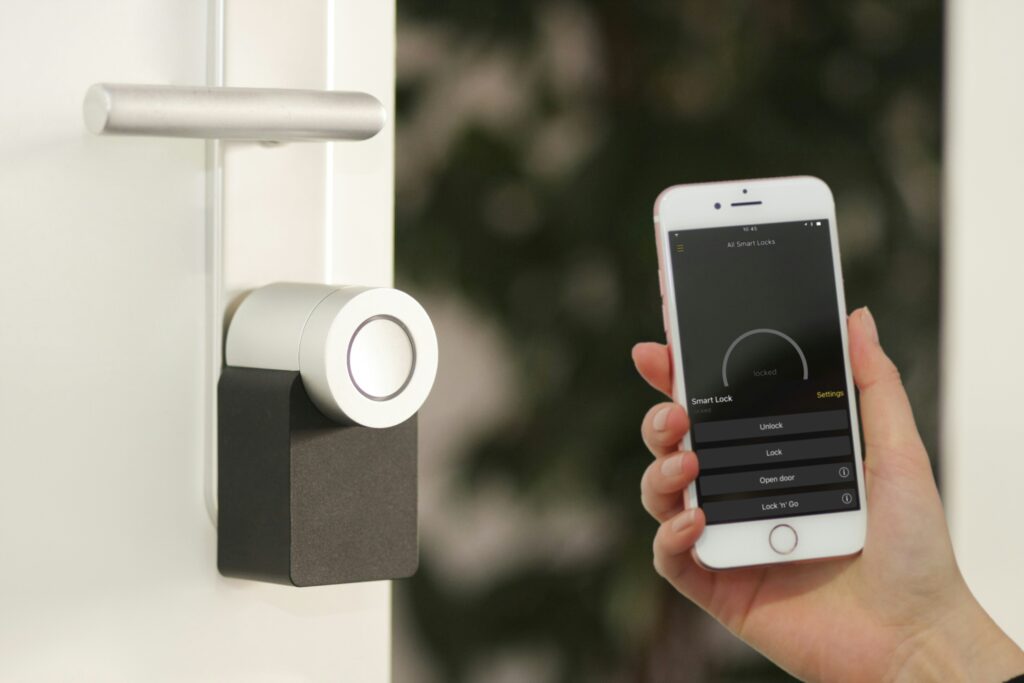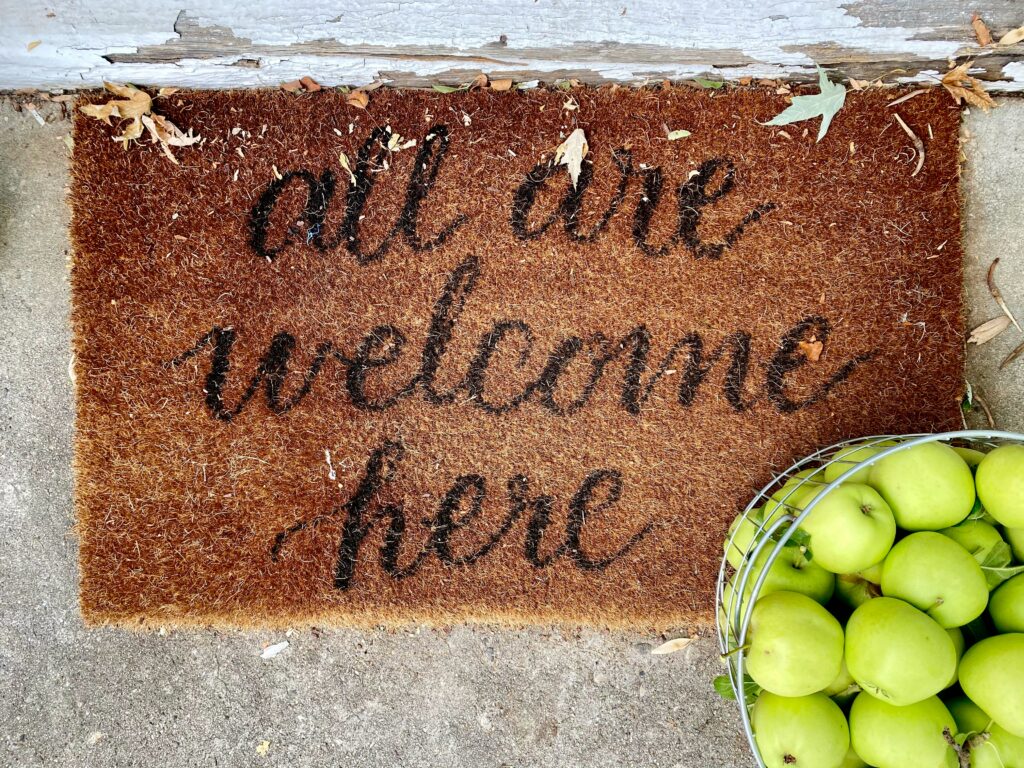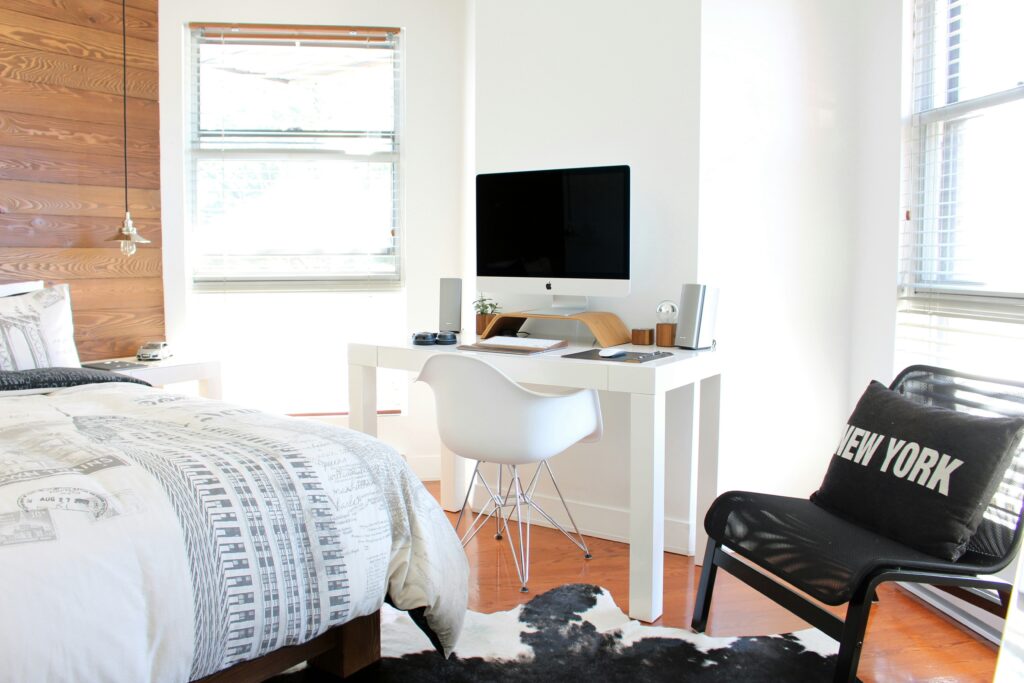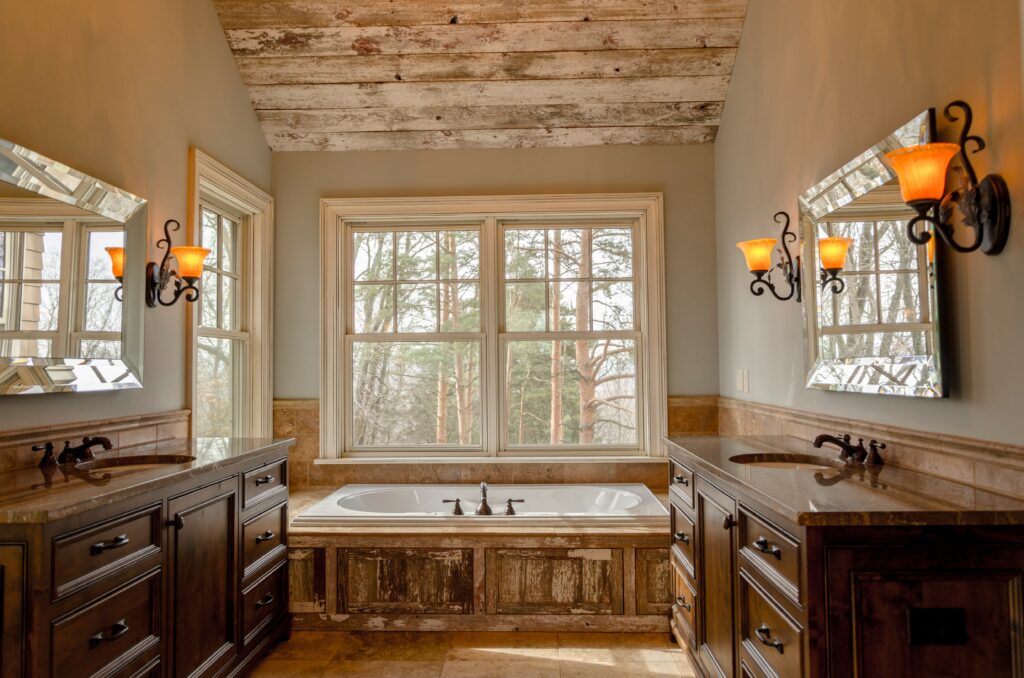Jumping into the world of short-term rental hosting can be intimidating. There are seemingly endless things to consider and rules to follow.
However, understanding the rules and regulations is essential for your success as a host. In this complete guide, we’ll break down all the important Airbnb rules for hosting so you’ll be well-equipped to provide a positive experience for your guests— and boost your earning potential.
Rules and Standards for the Airbnb Host
 The short-term rental industry has established a set of rules and standards designed to ensure that both hosts and guests have positive experiences. These guidelines cover everything from safety and cleanliness to guest communication and respect for neighbors. In the following sections, we’ll break down the key standards and Airbnb rules for hosting.
The short-term rental industry has established a set of rules and standards designed to ensure that both hosts and guests have positive experiences. These guidelines cover everything from safety and cleanliness to guest communication and respect for neighbors. In the following sections, we’ll break down the key standards and Airbnb rules for hosting.
Safety and security guidelines
 Ensuring the safety and security of guests should be the top priority for any Airbnb host. Here, we outline important safety and security guidelines that every host should implement to create a welcoming and secure atmosphere for their guests.
Ensuring the safety and security of guests should be the top priority for any Airbnb host. Here, we outline important safety and security guidelines that every host should implement to create a welcoming and secure atmosphere for their guests.
- Install smoke and carbon monoxide detectors: Place smoke detectors in each bedroom and common area and carbon monoxide detectors near any fuel-burning appliance. Test them monthly and ensure batteries are replaced as needed.
- Provide a first aid kit: Keep a well-stocked first aid kit in an easily accessible location. Make sure to check and replenish it regularly.
- Ensure secure locks on doors and windows: All entrance points should have sturdy, functioning locks. Consider smart locks that require proper access codes and to prevent key duplication.
- Fire extinguishers: Equip your property with fire extinguishers. Additionally, avoid using real candles and opt for battery-operated ones instead.
- Provide safe drinking water: If your water source is not municipal, ensure it’s tested regularly for contaminants. Consider providing a water filter if there’s any doubt about water safety.
- Emergency contact list: Compile a list of emergency contact numbers, including local police, fire brigade, the nearest hospital, and your contact information. Place it in an obvious spot, like on the refrigerator or on a bulletin board.
- Detailed house manual: Include safety instructions in your house manual, such as how to use appliances correctly.
- Regular maintenance checks: Conduct routine maintenance checks to ensure all safety equipment is in working order and the property is safe from hazards like exposed wiring or slippery paths.
By adhering to these guidelines, hosts can create a safer environment for their guests and potentially prevent accidents or emergencies during their stay.
Health and hygiene standards
 In addition to safety measures, it’s important to maintain a clean and healthy environment for your guests. Here are some tips to ensure your property meets health and hygiene standards:
In addition to safety measures, it’s important to maintain a clean and healthy environment for your guests. Here are some tips to ensure your property meets health and hygiene standards:
- Thorough cleaning: Before each guest’s arrival, make sure the property follows an extensive cleaning checklist by a cleaning crew to ensure all surfaces and areas are thoroughly sanitized.
- Clean bedding and linens: Wash all bedding and linens, including pillows, duvets, and mattress covers, between each guest’s stay.
- Handwashing supplies: Provide soap and hand towels in all bathrooms and kitchen areas for guests to use.
- Sanitizing wipes or sprays: Keep sanitizing wipes or sprays readily available for guests to clean high-touch surfaces during their stay.
- Trash and recycling: Clearly label trash and recycling bins and empty them regularly to prevent a build-up of bacteria or pests.
- Kitchen hygiene: To prevent cross-contamination, thoroughly clean all kitchen surfaces, utensils, and appliances after each stay.
- Toilet hygiene: Keep bathrooms clean and stocked with toilet paper, hand soap, and disposable hand towels.
- Air quality: Ensure proper ventilation in your property to maintain good air quality for guests.
- Inform guests of health hazards: As a responsible host, it’s important to inform guests of any potential health hazards in the area, such as water contamination or local illnesses.
By implementing these measures, you will ensure the safety and well-being of your guests and maintain a positive reputation for your property. Your guests will appreciate your commitment to their safety!
Communication and respect
 Communication and respect are vital to ensuring a pleasant stay for your Airbnb guests. Clear and ongoing communication helps set and manage expectations. Below are key guidelines to ensure a smooth stay for you and your guests:
Communication and respect are vital to ensuring a pleasant stay for your Airbnb guests. Clear and ongoing communication helps set and manage expectations. Below are key guidelines to ensure a smooth stay for you and your guests:
- Welcome message: Prior to their arrival, send your guests a warm and informative welcome message. Include essential details such as check-in procedures, WiFi codes, and contact information.
- Welcome letter: Leaving a welcome letter for your guests is a nice touch and can provide helpful information about the property and surrounding area. You can include recommendations for local restaurants, attractions, and any important house rules.
- Availability: Make yourself available to answer any questions or concerns your guests may have during their stay. Quick and helpful responses to guest messages can improve your shot at a positive review.
- Respect privacy: Respect your guests’ privacy. Inform them in advance if you need access to the property during their stay and avoid unannounced visits.
- Feedback: After their stay, kindly ask guests for feedback about their experience. This shows you value their opinion and are committed to improving your service.
- Neighborhood relations: As a host, it’s important to be considerate of your neighbors, maintain good relationships with them, and communicate with them. This may include informing them about your Airbnb listing and being respectful of noise levels and parking regulations.
By adhering to these principles, you create a welcoming environment that encourages positive reviews, repeat visits, and a reputable Airbnb listing.
Local laws and tax jurisdictions
 In addition to providing a comfortable and hospitable stay for your guests, it’s important to understand the legal and tax obligations that come with hosting on Airbnb. While the nitty gritty of legalities can feel overwhelming, we’ll highlight some key points in bite-sized pieces:
In addition to providing a comfortable and hospitable stay for your guests, it’s important to understand the legal and tax obligations that come with hosting on Airbnb. While the nitty gritty of legalities can feel overwhelming, we’ll highlight some key points in bite-sized pieces:
- Rental regulations: Before listing your property on Airbnb, make sure you are aware of any regulations or laws regarding short-term rentals in your local government. Some cities or homeowners associations may have specific rules.
- Local taxes: Airbnb may collect taxes on your behalf, but it’s important to research and understand any additional taxes that apply to short-term rentals in your location. For example, most rentals in California must pay an additional local occupancy tax.
- Income taxes: Hosting on Airbnb is considered a form of self-employment income, so be sure to report this income on your tax returns. You may also be eligible for certain deductions, so it’s important to keep detailed records of your hosting expenses.
- Insurance: Depending on where you live, you may need to have certain insurance coverage in place before listing your property on Airbnb. Check with your insurance provider to ensure adequate coverage for short-term rentals. Of course, it’s always advisable to invest in insurance regardless of requirements.
- Governing documents: If you live in a community with governing documents, such as a homeowner’s association or condo board, be sure to review these documents for any restrictions or rules related to vacation rentals.
Paying attention to these legal considerations can help ensure a smooth and successful vacation rental business. It’s always better to be well-informed and prepared than to face potential fines or serious consequences in the future.
Airbnb House Rules to Include in Your Listing
 Following rules is a two-way street. Be sure to include a few simple house rules in your listing to set expectations for guests and avoid any misunderstandings or issues during their stay. Some common ground rules for Airbnb include:
Following rules is a two-way street. Be sure to include a few simple house rules in your listing to set expectations for guests and avoid any misunderstandings or issues during their stay. Some common ground rules for Airbnb include:
- No smoking: This is a popular rule among Airbnb hosts, as smoking inside can cause damage to the property and may turn off potential guests who are sensitive to smoke.
- No pets allowed: If you have allergies or concerns about potential damage from pets, it’s important to specify this in your house rules. However, some hosts do allow certain types of pets on their property.
- Quiet hours: If you live in a shared building or neighborhood, it’s important to establish quiet time during certain hours to avoid disturbing neighbors.
- Maximum occupancy: Be sure to specify the maximum number of guests allowed in your rental property. This will help manage wear and tear on your short-term rental property and ensure that you comply with any local regulations.
- Parking rules and instructions: If parking is limited or restricted in your area, be sure to provide clear instructions for guests on where they can park during their stay.
- Check-in and check-out times: Setting a specific guest check-in time and check-out can help you better manage your rental schedule and create a reliable check-in experience for your next guests.
- No parties or events: Following the COVID-19 pandemic, Airbnb instituted a global ban on parties and events at all of its listings. However, it’s still important to explicitly state this in your house rules to avoid any confusion or potential violations.
- Cancellation policy: Airbnb offers different levels of flexibility for hosts regarding cancellations. It’s important to clearly communicate your chosen policy so guests are aware of the consequences if they need to cancel confirmed bookings.
Implementing these policies and clearly communicating them to guests can help prevent any conflicts or misunderstandings during their stay. It’s also a good idea to include these rules in your rental agreement so that guests are aware of them before booking.
Mashvisor Makes Following Airbnb Rules for Hosting Easier
Vacation rental software like Mashvisor can help you keep up with Airbnb’s hosting rules and ensure compliance. With features like automated pricing and booking management, you can easily set your rental rates, manage reservations, and stay on top of any changes in Airbnb’s policies. Additionally, Mashvisor offers a rental property calculator that can help you analyze potential properties and make sure they meet the necessary requirements for hosting on Airbnb.
Final Thoughts
 Being an Airbnb host has the potential to be both a financially gainful experience and a personally fulfilling endeavor. By implementing these best practices and staying up-to-date on the latest regulations and guidelines, you can ensure a positive experience for both yourself and your guests. Whether guests are renting a private room or your entire home, always communicate openly with your guests and promptly address any issues to maintain a good reputation as a responsible and reliable host.
Being an Airbnb host has the potential to be both a financially gainful experience and a personally fulfilling endeavor. By implementing these best practices and staying up-to-date on the latest regulations and guidelines, you can ensure a positive experience for both yourself and your guests. Whether guests are renting a private room or your entire home, always communicate openly with your guests and promptly address any issues to maintain a good reputation as a responsible and reliable host.